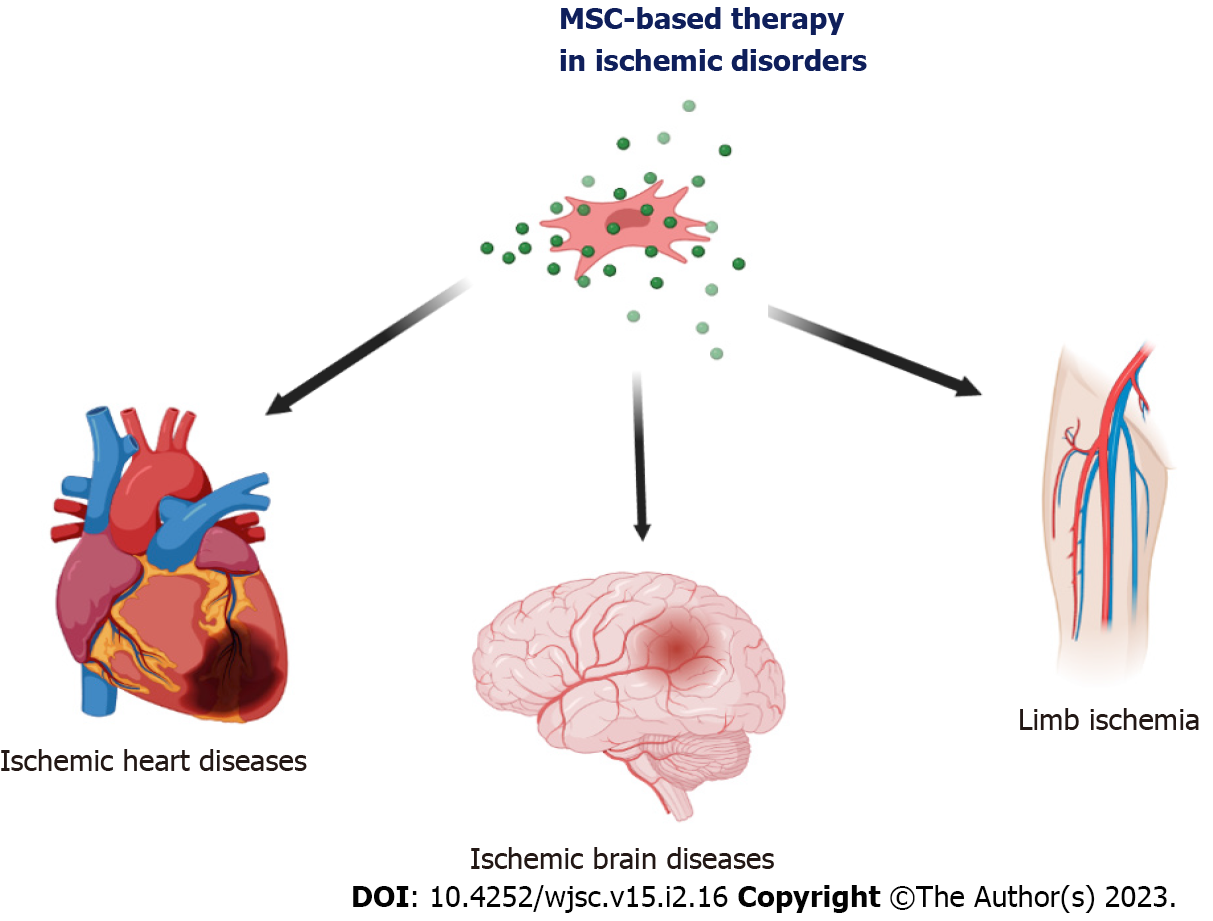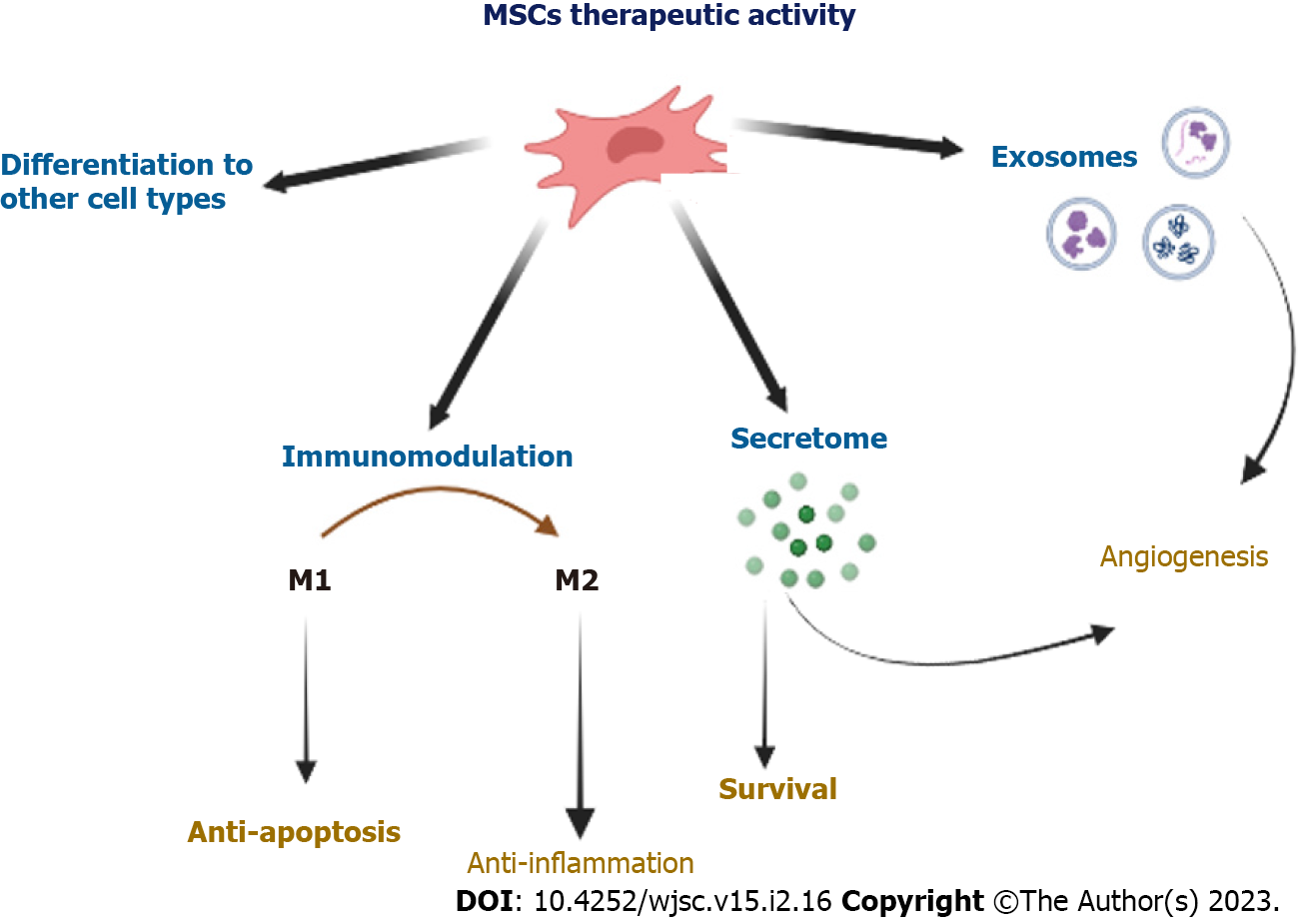Copyright
©The Author(s) 2023.
World J Stem Cells. Feb 26, 2023; 15(2): 16-30
Published online Feb 26, 2023. doi: 10.4252/wjsc.v15.i2.16
Published online Feb 26, 2023. doi: 10.4252/wjsc.v15.i2.16
Figure 1 Mesenchymal stem cell therapy in ischemic diseases.
The mesenchymal stem cells can be use as biological drugs in the treatment of ischemic disorders of various organs, including brain ischemia in ischemic stroke, heart ischemia in acute myocardial infraction, Chronic ischemic cardiomyopathy, ischemic heart failure, and chronic lower extremity ischemia. MSC: Mesenchymal stem cell.
Figure 2 Proposed therapeutic mechanisms of mesenchymal stem cells, including differentiation, immunomodulation, secretion of paracrine factors, and secretion of microvesicles.
Mesenchymal stem cells (MSCs) can repair and/or rescue injured cells via differentiation into replacement cell types including endothelial cells, and cardiomyocytes. The immunomodulatory activity of MSCs includes the suppression of macrophage polarization to M1, though favors M2 polarization. MSCs can secrete a number of factors that stimulate the regeneration of damaged cells and tissues [e.g., vascular endothelial growth factor (VEGF), insulin-like growth factor 1 (IGF-1), hepatocyte growth factor (HGF), stromal cell-derived factor-1] and having a beneficial effect for neovascularization processes (e.g., VEGF, IGF-1, HGF, fibroblast growth factor-2, platelet-derived growth factor-BB, placental growth factor), inhibiting the pathological remodeling of ischemic tissues [e.g., matrix metalloproteinase 2 (MMP-2), MMP-9]. The exosomes secreted by MSCs contain cytokines and growth factors, signaling lipids, mRNAs, and regulatory microRNAs which can be responsible for the therapeutic effects. MSC: Mesenchymal stem cell.
- Citation: Szydlak R. Mesenchymal stem cells in ischemic tissue regeneration. World J Stem Cells 2023; 15(2): 16-30
- URL: https://www.wjgnet.com/1948-0210/full/v15/i2/16.htm
- DOI: https://dx.doi.org/10.4252/wjsc.v15.i2.16










